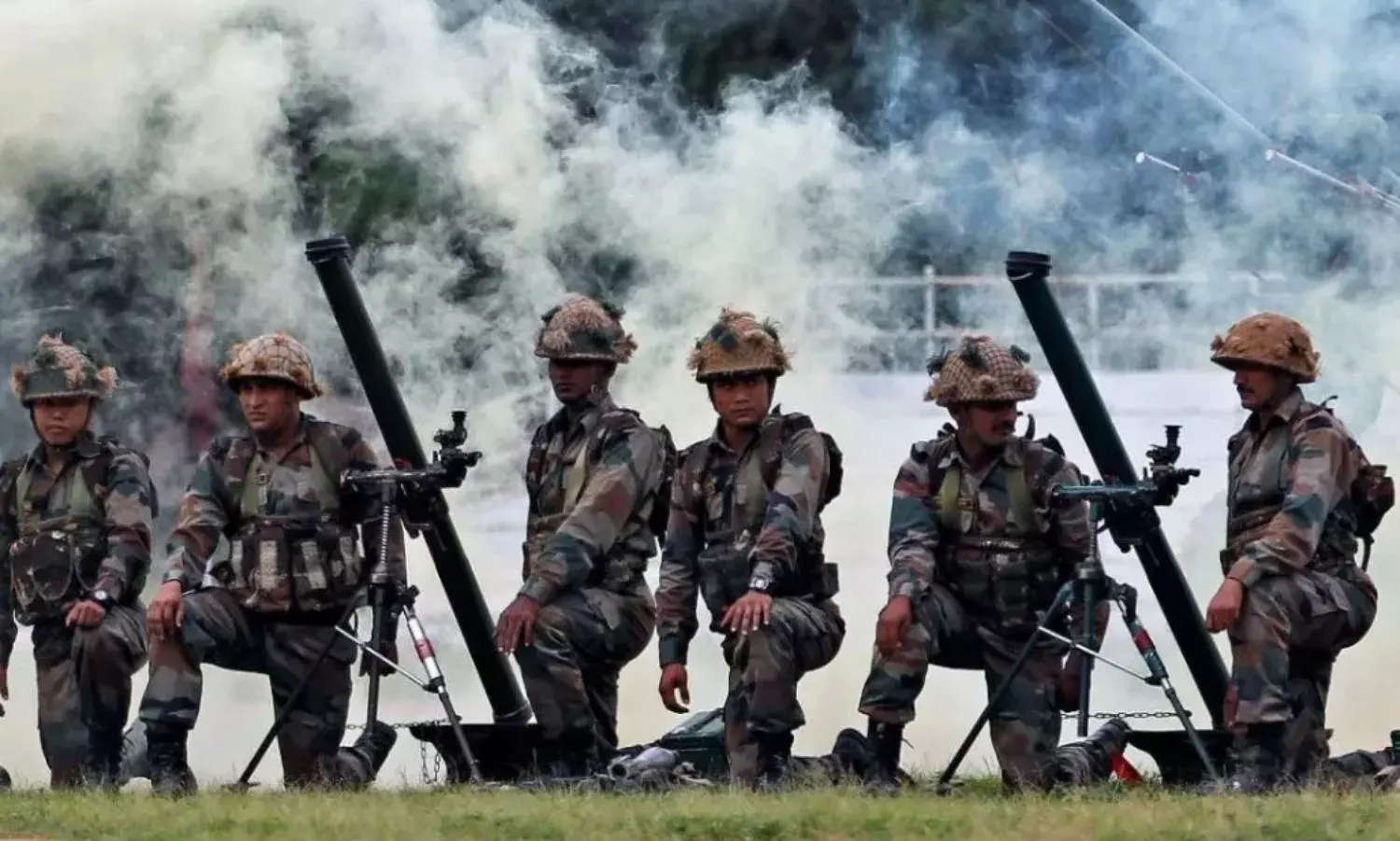The Surgical Strike That Was Not Quite Surgical
As the Modi government prepares to celebrate the surgical strike...
The now down-on-its-heels Modi regime is getting ready to celebrate the "surgical strike" as one of its high points. It may well be so given the government's threadbare record.
The dictionary describes a surgical strike as an attack (usually without prior warning) intended to deal only with a specific target. In other words it is an attack that is intended to seize or inflict serious damage on or destroy an objective. It is a swift and targeted attack with the aim of minimum collateral damage to nearby areas and civilians. The neutralising of targets with surgical strikes also prevents an escalation to full-blown war. Surgical strike attacks can be carried out via air strikes, by airdropping special operations teams or in swift ground operations by sending in commandos or even regular troops.
The great strategist Sir Basil Liddell Hart described a surgical strike as being akin to the single arrow shot by Paris (who seduced Helen which caused the war) at Achilles' heel, which was the only vulnerable spot.
In modern times a surgical strike is a single action that decapitates or significantly reduces the enemy's capability. The 1967 Israeli surprise air attack that destroyed most of the Egyptian air force on the ground was a surgical strike.
At another place on the spectrum was the slaying of Osama bin Laden by US Navy SEALs in a helicopter-borne attack. The June 2006 US attack that killed Abu Musab-el-Zarqawi, in which a single F-16C dropped two 500 lb guided bombs on a safe house in the village of Hibhib near Baqubah in Iraq’s Diyala province on very specific information, or the single Hellfire missile launched by a CIA drone that killed Baitullah Mehsud, leader of the 5000-strong Tehrik-e-Taliban Pakistan in August 2009 were classic surgical strikes meant to decapitate the enemy leadership and demoralise the forces.
A successful surgical strike has a devastating effect. But what happened after Uri? Pakistan-backed terrorists struck back only three days later at Baramulla. The Pakistan Army too resorted to firing at several places. Zaki-ur-Rehman Lakhvi of Pakistani Punjab and Syed Salahuddin (Mohammed Yusuf Shah) of Sohibug in Kashmir still sleep soundly and safely every night with their many wives. They still give press conferences. To pin them to a place and time is not very difficult.
I have always advocated raising the ante with Pakistan by undertaking deep strikes at terrorist leadership centres to make their activity costly. It is not required that we send men across to do this job. The air force and even the navy have missiles of great precision. The fear always cited by many military men is that Pakistan will react with strikes of their own.
For a start we have no terrorist targets in India. We have plenty of military targets for them to pick to strike back if they want to hit back. But any such counter-attack is a disproportionate response and then it is for India to decide how to respond and where. This has been gamed many times. Escalation only leads to Pakistan’s military annihilation. Nuclear war will result in their complete wasting. However irrational they may seem, rationality always prevails.
I have no doubt that the Indian Army sent forces across the line of control and hit several places where terrorist footsoldiers were gathered. They have done this several times in the past without any accompanying fanfare. As a matter of fact the decision to do this was delegated to the corps level. It was the government’s policy. I have no doubt that this time too they drew blood and took no prisoners as has been happening for several years now.
Misusing nomenclature to describe the action as something bigger and more major is sheer political charlatanism. Maybe it was Ajit Doval’s vivid imagination formed after “several years as an undercover agent in Pakistan”, as his many hagiographers claim? If they had gone in and taken out Salahuddin or brought him back it would have qualified as a surgical strike.
If RSS leader Ram Madhav said it was a surgical strike and an achievement of the Modi government the we might all loudly applaud it. But why the Director-General of Military Operations described it as such when it was not is something I am unable to fathom.
I have known several DGMOs, and they were all distinguished soldiers with great integrity, and very precise in their speech. A DGMO has got to be so. The job demands they be clinically accurate in making an assessment and surgically precise in determining an action. I do not doubt that this DGMO too is of that lineage. But sometimes they have to act out a script.
Calling what happened as surgical strikes is clearly political. How a bunch of cross-border raids became surgical strikes is a story waiting to be told.





